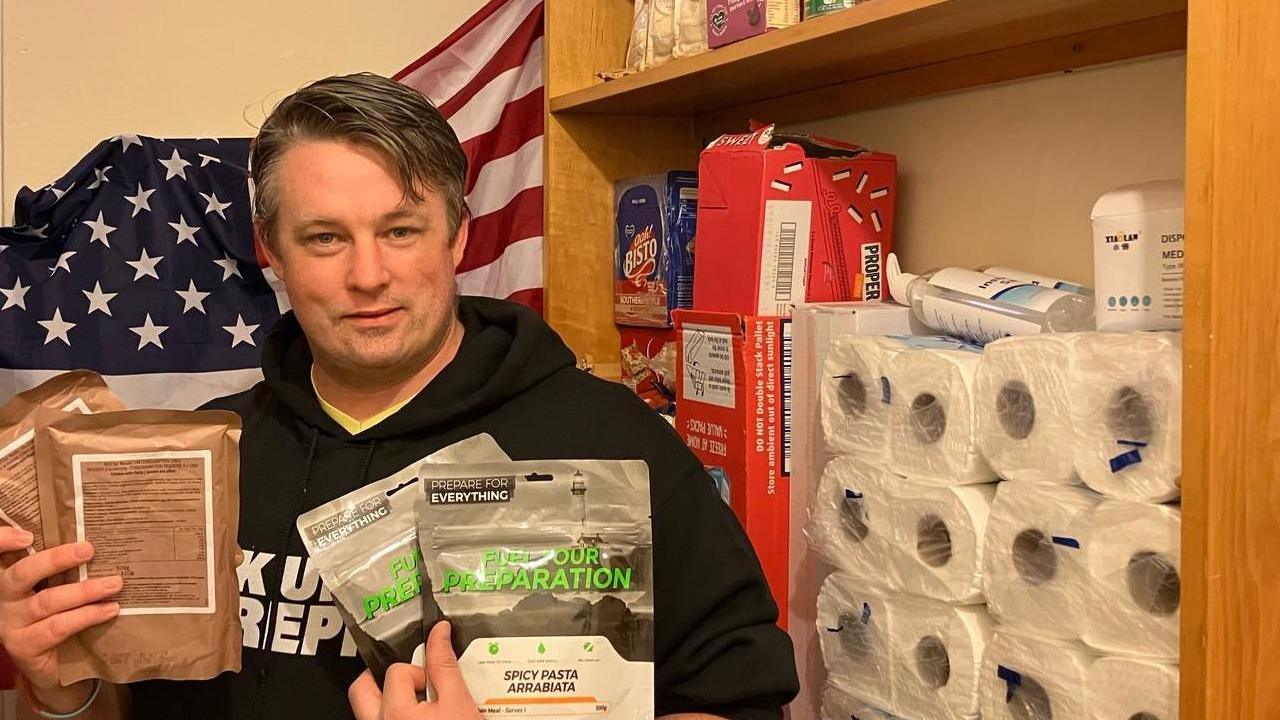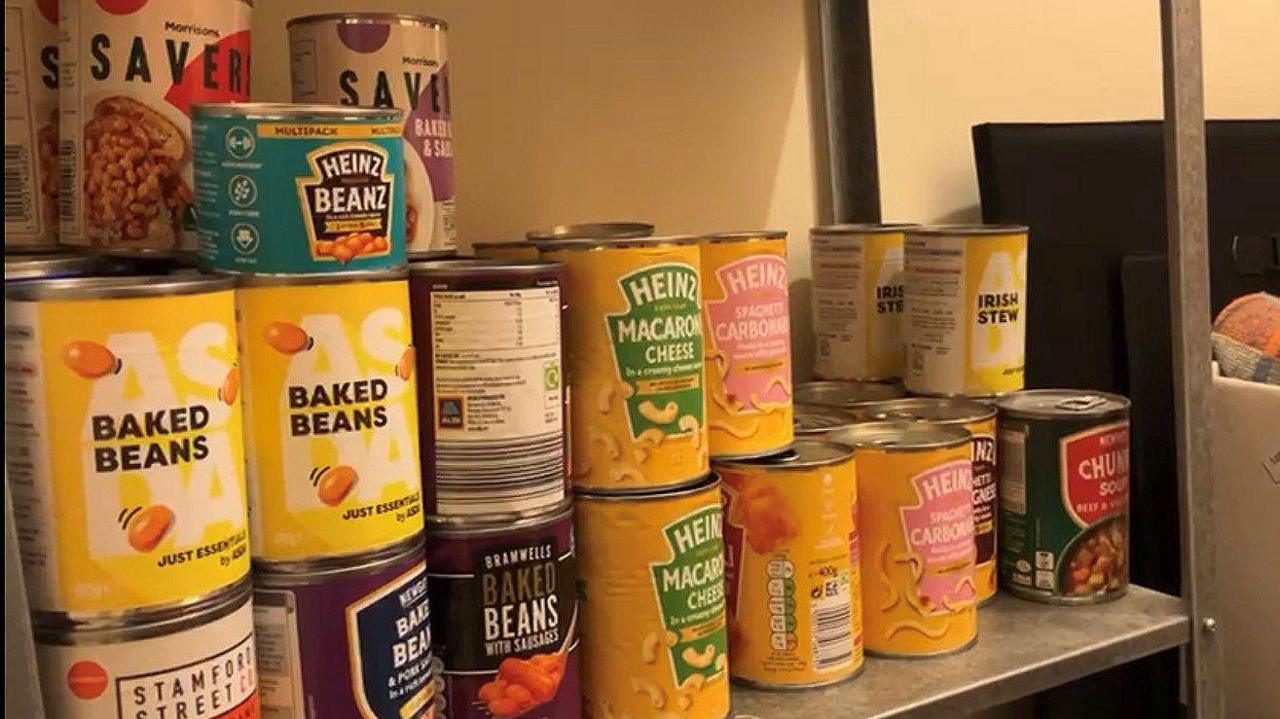'I have 100 cans of food ready in case of disaster'

Mike, who is known as the UK Urban Prepper, says others should prepare for the worst too
- Published
A "prepper" who keeps about a hundred cans of food in his home as he "prepares for the worst but hopes for the best" is urging people to follow his example in case of an emergency or disaster.
Mike, who is known as the UK Urban Prepper, said he had always had a month's worth of non-perishables in his house in Burnley, Lancashire, "just in case", along with a box of PPE, medical supplies and freeze-dried meals that last 50 years.
He said he was surprised more people did not have similar arrangements given the range of challenges now facing the modern world.
"It baffles me that people aren't doing it," he said.
Mike shares survival tips on social media platforms like YouTube and TikTok, ranging from food preservation to emergency preparedness on his social media channels.
He told BBC Radio Lancashire he was brought up to be prepared with his parents always having a well stocked pantry.
"I just don't want to be left short," he said.

Mike has about 100 tins of food in his home "just in case" of an emergency
Mike said the Covid-19 pandemic had made him determined to be prepared in case he could not leave his home.
"I'd rather not be queueing up 10 metres apart outside a supermarket," the 40-year-old said.
"I'd rather have everything here ready."
He explained the basics which needed to be "prepped".
"Food and water is what we need to stock most and a way to cook that if there is no power," he said.
"We centre it all mainly around if you didn't have electricity and gas.
"If you centre it around that any disaster that affects us whether it is natural or man-made usually that is the knock-on effect."
'Keeping it real'
A "doomsday prepper" is someone who anticipates a disaster or emergency and actively prepares for it by stockpiling food or supplies, according to the Oxford English Dictionary.
Dr Sarita Robinson from the University of Central Lancashire, whose research includes cognitive neuropsychology and psychobiology in relation to people in survival situations, praised Mike for doing a great job with his prepping and for "keeping it real".
She said he made prepping "manageable, affordable and very practical".
"I have studied survival psychology for about 25 years now and part of [it] is looking at the preparations people do before an emergency takes place."
Dr Robinson added: "One of the key findings is if you do some prep - and you are a prepper - the outcomes are so much better when an emergency hits and that is both practically and also psychologically."
Listen to the best of BBC Radio Lancashire on Sounds and follow BBC Lancashire on Facebook, external, X, external and Instagram, external and watch BBC North West Tonight on BBC iPlayer.
Get in touch
Tell us which stories we should cover in Lancashire
Related topics
- Published10 December 2020
